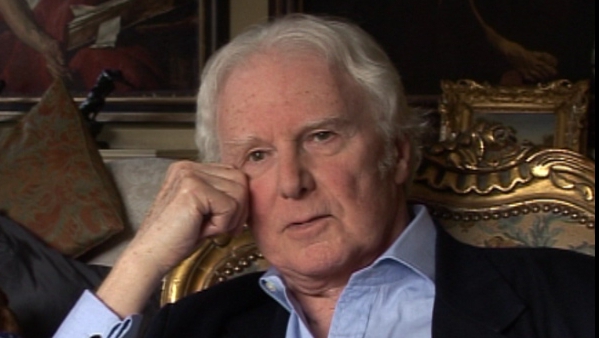I remember once, I’d been commissioned by then, I was what they call 'duty dog' for a week, where a junior officer has to wander around the camp, sort of 24 hours a day for seven days. It’s usually a punishment for some kind of misdemeanour. My misdemeanour was modesty, but I will tell you about that later. Anyway, I was doing this, and I… you have to go into a barrack room and pull every lavatory chain and see that, you know… you have to test every door handle. It’s the most boring thing in the world. You have to check that the coal is correctly… we used to have to paint coal white. Well, that was a punishment, but it also meant that if anybody stole coal from the coal heap, to put in the stoves that heated the barrack rooms… in other words, you couldn’t go beyond your ration of coal because… unless you’ve got some white paint as well. So it was a precautionary measure. It may have sounded like idiocy, but it did prevent everybody from stealing coal. So when… how did I get there? Oh yes. And I went into a barrack room one day in the middle of the afternoon, and God knows where all the other boys were, but there was a bed. And a very narrow single bed, in which there were two boys entwined and fast asleep. And I thought, oh God, thank heavens it’s me that’s found you. So I tweaked the toe that was sticking out most prominently, and said, 'For God’s sake', you know, 'if you’re going to do that, then be more sensible about it'. And that was that.
But heaven knows what would have happened to those two if they’d been found by some militant corporal. There would have been all hell to pay.
No, you… there were people. There were regular officers of quite long standing who, looking back on it, were quite clearly queer. But whether they were doing anything about it or not, I don’t know.
But certainly, as a National Service subaltern, you would have been a damned fool. Nobody would have given you any quarter on that. You would have been out. And disgraced. And everybody would know about it.






